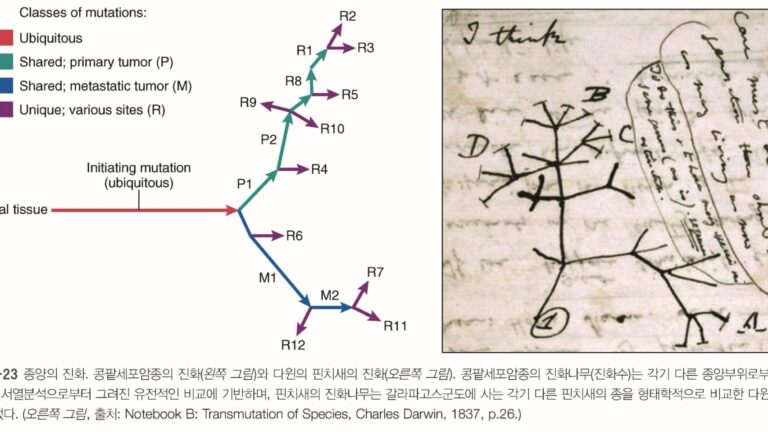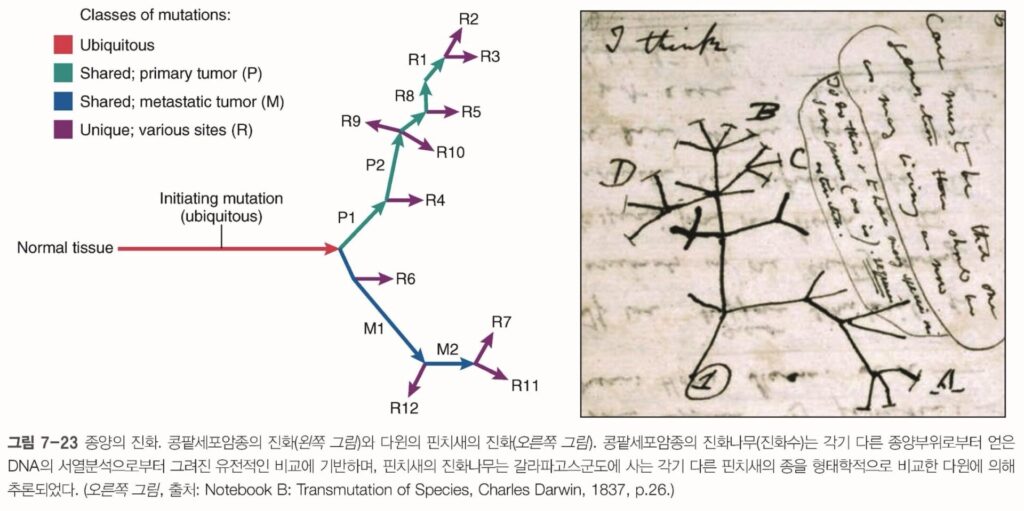The Miraculous Process of Carcinogenesis: A Molecular Perspective
Cancer development is a complex process driven by genetic mutations. Understanding how cancer cells grow, adapt, and spread is crucial to comprehending the nature of cancer.
Key Traits Required for Cancer Formation
- Accumulation of Non-lethal Genetic Damage
Cancer arises through the accumulation of non-lethal genetic mutations. These mutations allow cells to survive and continue proliferating. Unlike lethal mutations that kill the cell, non-lethal mutations accumulate over time without causing immediate harm. The core of carcinogenesis lies in these non-lethal genetic changes. Tumors originate from the clonal expansion of a single precursor cell, forming through this process.Carcinogenesis is a multi-step process that occurs at both the genetic and phenotypic levels. As mutations accumulate, the potential for malignant transformation increases dramatically. Most malignant tumors have a monoclonal origin, yet, by the time a tumor becomes clinically evident, it consists of highly heterogeneous cells. These cells have adapted to overcome the barriers of rapid growth, survival, invasion, and metastasis, enhancing their ability to thrive. - Adaptation and Evolution for Unrestricted Growth
To maintain uncontrolled growth, cancer cells must adapt and evolve within their environment. They face the body’s natural defense mechanisms, such as immune responses and regulatory processes. Through genetic mutations and epigenetic changes, cancer cells gain the ability to evade these controls, allowing them to continue growing indefinitely. This process of continuous adaptation is critical to the survival and progression of cancer cells. - Invasion and Survival Beyond the Original Site
A hallmark of cancer is its ability to invade new tissues and spread to other parts of the body. This process, known as metastasis, involves overcoming several barriers that normal cells cannot surpass. Cancer cells break away from the primary tumor, travel through the bloodstream or lymphatic system, and colonize distant organs. The ability to metastasize marks an advanced stage of cancer and is often associated with poor prognosis. The complexity of this process underscores the extraordinary resilience of cancer cells in overcoming natural biological obstacles.
Why Does Cancer Affect So Many?
The widespread occurrence of cancer can be attributed to the slow and prolonged exposure to carcinogens and cancer-promoting agents. This exposure happens over many years, allowing for the gradual accumulation of genetic damage. Even with such exposure, not everyone develops cancer. Some individuals have protective genetic factors, while others benefit from efficient DNA repair mechanisms. Rest and recovery play a key role in repairing damaged DNA, helping the body remove potentially cancerous cells before they can proliferate.
Preventing Cancer Through Healthy Habits
While some genetic factors are beyond control, lifestyle choices can significantly reduce cancer risk. Avoiding exposure to carcinogens from an early age is essential. Adopting healthy habits like regular exercise and adequate rest promotes DNA repair processes. These habits help the body eliminate damaged cells and reduce the likelihood of cancer development.
Understanding the molecular mechanisms behind cancer highlights the importance of prevention through healthy living. A strong focus on maintaining a balanced lifestyle can provide the body with the tools it needs to fight off the gradual damage that leads to cancer formation.
By grasping these molecular details, we can better appreciate why cancer is both a common and complex disease, yet preventable through mindful habits.
For the original Korean text, visit here.
If you’re curious about the basics of traditional Korean medicine and health, read the following article:
What Your Sleeping Position Says About Your Health
Learn Why Studying JangSang Medicine is Important.
Frequently Asked but Silly Questions (Foods Good for the Liver??)
Thank you for reading.


